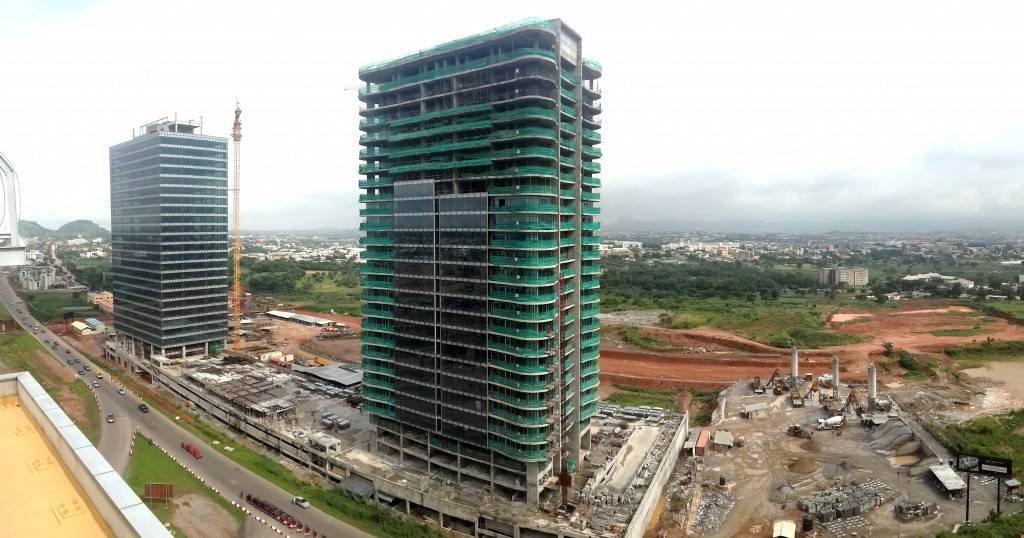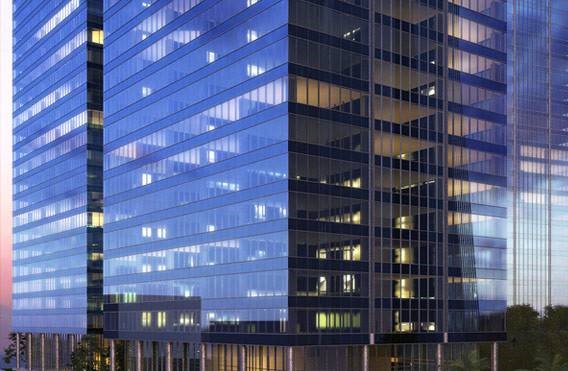In the heart of Nigeria’s vibrant capital city, Abuja, stands a symbol of economic progress and global connectivity – the World Trade Centre Abuja. This impressive complex represents more than just a set of buildings; it’s a testament to Nigeria’s commitment to international trade, commerce, and economic growth.
The World Trade Centre Abuja is part of the World Trade Centres Association (WTCA), a global network of more than 300 World Trade Centres in nearly 100 countries. These centres facilitate international trade and investment by providing businesses with essential infrastructure, resources, and connections
One of the primary roles of the World Trade Centre Abuja is to foster economic development in the region. It achieves this by offering state-of-the-art office spaces, conference facilities, and exhibition areas to local and international businesses. These resources enable companies to expand their operations, forge new partnerships, and tap into global markets.
The World Trade Centre concept is built on the idea of connectivity. The Abuja centre serves as a bridge between Nigerian businesses and the world. It hosts trade fairs, conferences, and networking events that attract participants from various industries and countries. This intermingling of ideas and expertise sparks innovation and drives economic progress.

In today’s world, sustainability is a key concern. The World Trade Centre Abuja recognizes this and incorporates environmentally friendly practices into its operations. From energy-efficient building designs to waste reduction initiatives, it sets an example for sustainable development.
Besides economic benefits, the World Trade Centre Abuja fosters cultural exchange. It often hosts cultural events, art exhibitions, and performances, celebrating Nigeria’s rich heritage. This not only enriches the local culture but also enhances international understanding and cooperation.
Nigeria is Africa’s largest economy, and the World Trade Centre Abuja plays a pivotal role in elevating the nation’s global trade presence. By facilitating international trade and investments, it positions Nigeria as a significant player in the global market.
The World Trade Centre Abuja is a complex of eight buildings currently under construction in the Central Business District of Abuja, FCT in Nigeria. Among these, seven skyscrapers are planned for the site, with two of them having already been topped out. The WTC Tower 1, standing at 110 meters (361 feet) with 24 floors, briefly held the title of the tallest residential building in Nigeria upon topping out in 2015. Meanwhile, WTC Tower 2, reaching a height of 120 meters (394 feet), stands as the tallest building in Abuja.
The development of the World Trade Centre Abuja commenced in 2010, covering a vast land size of over 6,000 hectares in the Central Business District of Abuja. The project’s journey started on a much smaller scale and underwent significant expansion to become a mega-multi-use complex designed to be bustling day and night. President Goodluck Jonathan inaugurated the project in September 2011, with an initial completion and opening date set for 2013. However, the project faced several challenges in design, development, and construction, leading to delays. Private financial institutions and investors have funded the project, with an estimated cost of about ₦200 billion. It is being developed by The Churchgate Group, a Nigerian real estate company. The architectural design is the work of Woods Bagot, with structural consultation by WSP Consulting, and other key partners such as Abuja Investments Company. When completed, the World Trade Centre Abuja will be the largest mixed-use development on the West African subcontinent.
The buildings in the World Trade Centre Abuja are constructed using glass cladding and aluminium ceilings, which are heat-resistant, sound-proof, and non-flammable. Advanced VRV air conditioning systems, CCTV security, and controlled card access are integrated throughout the complex. Three levels of basement parking provide ample space for visitors. The curtain wall system used in the buildings was installed by Eurotech Facades

The World Trade Centre Abuja comprises six towers, a mall, and a hotel. As of 2015, Towers 1 and 2 have been topped out, while the other buildings are in various stages of development.
World Trade Centre Tower 1
A 24-floor apartment building, standing at 110 meters (361 feet), containing 120 apartments ranging from 1 to 6 bedrooms, with Duplex options and two exquisite Penthouses and Pool Villas. Tower 1 topped out in 2015, becoming the tallest residential building in Nigeria.
World Trade Centre Tower 2
Referred to as “Abuja’s only Grade-A office space,” this is a 25-floor commercial building standing at 120 meters (394 feet). Office options in this tower range from 130 square meters to 1,440 square meters. It also topped out in 2015, becoming the tallest building in Abuja.
Capital Mall
Scheduled to begin operations in late 2016, it is estimated to have a capacity of about 40,000 square meters on two levels.
World Trade Centre – The Hotel
Set to begin construction in 2016/2017, it will be a 5-star 38-storey branded hotel, managed by Grand Hyatt, with at least 45 floors.
The World Trade Centre Abuja, with its remarkable architectural features and ambitious design, promises to be a transformative force not only in Abuja but also on the West African subcontinent. It stands as a testament to Nigeria’s dedication to fostering international trade, economic growth, and cultural exchange while also making strides in sustainable development. As the project continues to evolve, it remains a symbol of Nigeria’s commitment to a vibrant and interconnected future on the global stage.
Sources




